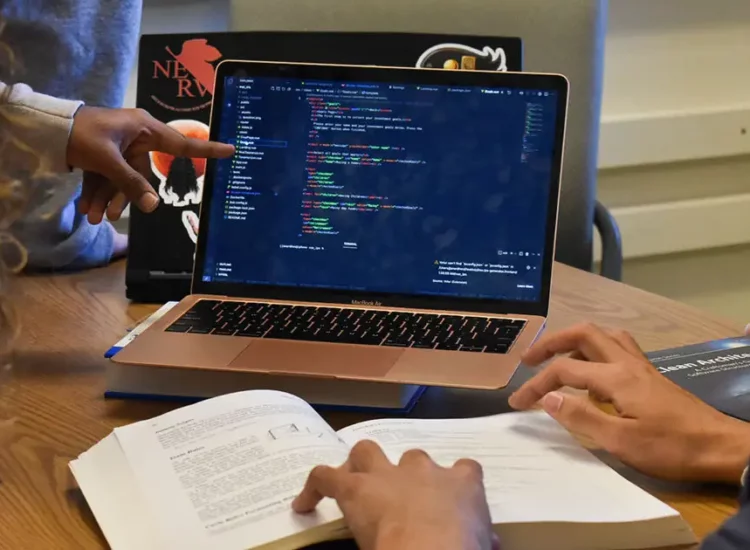The construction industry is undergoing a transformation, and AI estimating software is at the forefront of this change. By automating the tedious aspects of construction estimating, improving accuracy, and streamlining workflows, AI-powered solutions are helping construction professionals increase their profitability and gain a competitive edge.
Toc
Introduction to AI Estimating Software
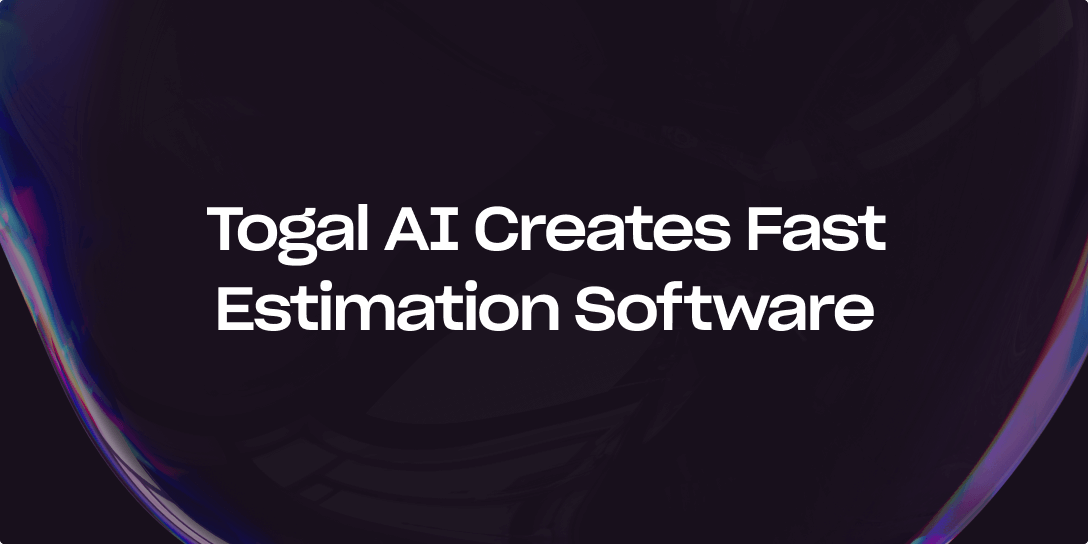
Construction estimating is a vital process in the construction industry, as it involves predicting the costs and materials needed for a project. Traditionally, this process has been time-consuming and prone to errors due to its reliance on manual calculations. However, with advancements in technology, AI estimating software has emerged as an efficient solution that can revolutionize the way construction estimates are conducted.
AI estimating software uses artificial intelligence and machine learning algorithms to automate the estimation process. By analyzing historical data and project specifications, these programs can predict accurate costs and quantities of materials required for a construction project. This not only saves time but also reduces human error and allows for more precise estimates.
The Challenges of Traditional Construction Estimating
For decades, the construction industry has relied on manual processes that are fraught with inefficiencies and inaccuracies. Traditional estimating methods often involve extensive paperwork, manual takeoffs, and spreadsheets, which can lead to significant delays. Construction firms can spend weeks or even months on a single project’s cost estimation, with the average annual spending per contractor for the preconstruction process alone reaching $66,000. This not only impacts a company’s ability to submit more proposals but also makes them appear less qualified than their competitors.
Moreover, the reliance on manual and digitized methods of measuring and calculating using rulers and computer mice often results in inaccuracies. These errors can lead to costly rework and project delays, which can eat into profit margins. In an industry where every dollar counts, this traditional approach to construction estimating is simply not sustainable in today’s fast-paced and competitive landscape.
The Rise of AI Estimating Software
The construction industry is embracing the power of artificial intelligence (AI) to transform the estimating process. AI estimating software leverages machine learning algorithms and data analysis to automate the tedious aspects of construction takeoffs and cost calculations. These advanced technologies can extract measurements and quantities directly from 2D plans, completing the takeoff process in a matter of seconds with an accuracy of up to 97%.
By harnessing the speed and precision of AI, construction companies can now generate accurate estimates in a fraction of the time it would take using traditional methods. This not only reduces the risk of human error but also allows teams to focus on more value-generating activities, such as scoping, pricing, and value engineering. The shift toward AI estimating software is not just a trend; it represents a fundamental change in how the construction industry approaches project planning and execution.
Benefits of AI Estimating Software for Construction Professionals
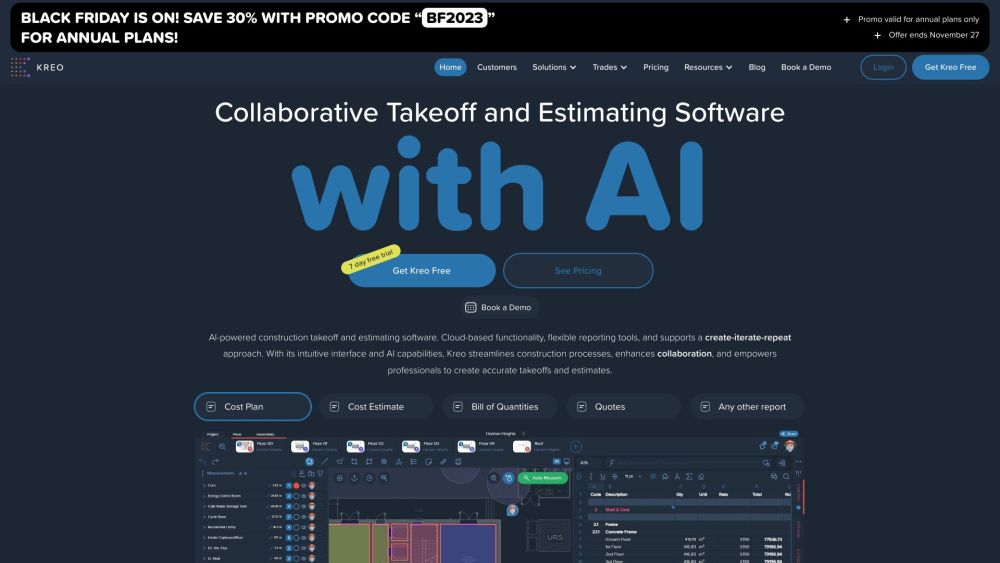
The implementation of AI estimating software offers a wide range of benefits for construction professionals, from increased accuracy and efficiency to improved profitability and enhanced decision-making.
Increased Accuracy and Efficiency
AI estimating software excels in analyzing historical data on material prices and market fluctuations. By factoring in real-time data from suppliers, these tools can generate more accurate cost estimates for materials, reducing the risk of overspending and ensuring project profitability. For instance, a recent study by the National Association of Home Builders found that AI-powered material cost estimations were 15% more accurate than traditional methods, leading to significant savings for builders.
Moreover, the automation of the takeoff process through AI-powered software can significantly reduce the time required to generate an estimate. Instead of spending weeks or months on takeoffs, construction teams can now complete the entire estimating process in a matter of seconds. This time savings translates into more bids submitted and more opportunities for securing projects, ultimately leading to increased revenue.
Improved Profitability
AI estimating software can also enhance profitability by optimizing resource allocation and scheduling. By analyzing historical project data, these tools can identify patterns and predict potential delays or bottlenecks. This allows construction companies to allocate resources more efficiently, reducing labor costs and minimizing downtime. For example, a recent study by McKinsey & Company found that construction companies using AI-powered resource optimization tools saw a 10% improvement in project efficiency, resulting in significant cost savings.
While AI estimating software offers significant improvements in accuracy and efficiency, it’s important to acknowledge its limitations. For complex or highly customized projects, human expertise may still be required to handle intricate details or unique design elements. For example, in projects involving specialized materials or unconventional construction methods, the software may require human intervention to ensure accurate cost estimations.
2. https://kinemasterap.org/mmoga-cheap-web-hosting-for-small-businesses-the-ultimate-guide
3. https://kinemasterap.org/mmoga-the-best-computer-programming-schools-your-guide-to-a-tech-career
4. https://kinemasterap.org/mmoga-unlock-your-tech-future-with-online-it-certificate-programs
Additionally, while AI estimating software can ultimately lead to improved profitability, it’s important to consider the initial investment costs. Implementing these tools requires purchasing licenses, training staff, and integrating them into existing workflows. Construction companies need to carefully evaluate their budgets and project volumes to ensure that the investment in AI aligns with their long-term goals and financial capabilities.
Enhanced Decision-Making
AI estimating software provides construction professionals with a wealth of data-driven insights that can inform their decision-making process. By analyzing historical project performance, market trends, and other relevant information, these tools can help identify opportunities for optimization, detect potential risks, and suggest strategies for improvement.
This data-driven approach empowers construction teams to make more informed decisions, whether it’s bidding on new projects, allocating resources, or improving their estimating workflows. As a result, construction companies can operate with greater agility, flexibility, and confidence in an ever-evolving industry. The ability to quickly access and analyze data allows teams to pivot when necessary and adapt to changing project requirements.
Streamlined Workflows
AI estimating software often integrates seamlessly with other construction management tools, creating a more streamlined and efficient workflow. This integration reduces the administrative overhead associated with manual data entry, document management, and communication, allowing construction teams to focus on the core aspects of their projects.
By automating repetitive tasks and facilitating real-time collaboration, AI-powered estimating solutions enable construction professionals to enhance productivity, improve information sharing, and foster better coordination among team members, both in the office and on the job site. This holistic approach to project management not only saves time but also enhances the overall quality of work produced.
The Future of AI Estimating in Construction
As the construction industry continues to evolve, the role of AI estimating software will likely expand, introducing even more advanced capabilities and integration possibilities. Innovations in machine learning algorithms and artificial intelligence are set to further refine the accuracy of cost estimations, enabling construction professionals to predict project costs with unprecedented precision.
Moreover, emerging technologies such as augmented reality (AR) and the Internet of Things (IoT) can be integrated with AI estimating tools to offer more immersive and real-time project visualization and tracking. For instance, AR can enhance on-site inspections by projecting digital information over the physical construction site, allowing for immediate adjustments to estimates and plans. Meanwhile, IoT devices can provide ongoing data about material usage, environmental conditions, and equipment status, which can feed directly into AI systems to continuously update and refine project estimates.
In addition to technological advancements, the expanding adoption of AI estimating software will likely drive significant changes in industry standards and regulations. As more construction companies demonstrate the benefits of AI-powered estimations, industry bodies may develop new best practices and certification programs to ensure the effective and ethical application of these technologies. This trend will help to harmonize the use of AI across projects, ensuring that its advantages are universally accessible while maintaining a consistent level of quality and safety.
The future of AI estimating in construction is promising, with the potential to revolutionize not just the estimating process, but the entire landscape of project management. As the industry becomes more data-driven, construction companies that embrace these technologies will be well-positioned to lead in a competitive market, delivering projects with greater efficiency, accuracy, and profitability.
Case Studies: Success Stories with AI Estimating Software
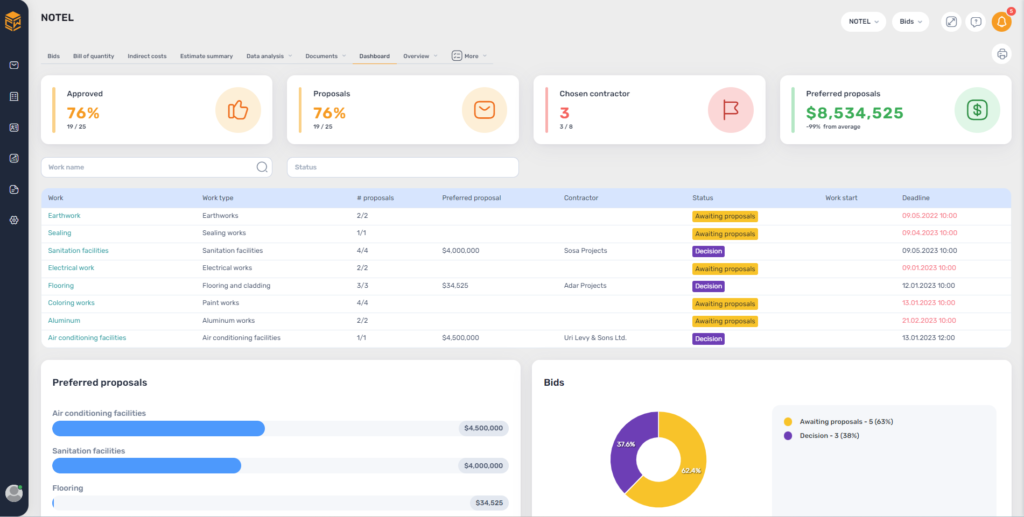
Case Study 1: Streamlining Large-Scale Projects
A prime example of the successful implementation of AI estimating software is a large-scale infrastructure project undertaken by a major construction company in the United States. The company faced the daunting challenge of estimating costs for a new transportation hub, a project of unprecedented complexity and scale. By leveraging AI-powered estimating tools, the company was able to drastically reduce the time required for the initial cost estimations and bid preparation.
The software’s ability to analyze detailed architectural plans and predict potential risks allowed the company to provide a highly accurate and competitive bid. Throughout the project, the AI tools continued to aid in resource allocation and scheduling, helping the team to stay on budget and ahead of schedule. Ultimately, the project was completed with a 15% cost savings, largely attributed to the efficiencies gained through AI estimating software.
Case Study 2: Enhancing Accuracy in Residential Construction
In another instance, a residential construction firm specializing in custom homes sought to improve the accuracy of their cost estimations. Historically, their manual estimating processes were time-consuming and prone to human error, often leading to budget overruns and client dissatisfaction. By incorporating AI estimating software, the firm experienced a significant shift in their operations.
The AI tools enabled the company to generate more precise cost estimates, accounting for various factors such as material costs, labor hours, and potential delays. This newfound accuracy not only improved client trust and satisfaction but also resulted in better profit margins. The firm reported a 20% reduction in estimating errors and a corresponding increase in profitability, making AI an integral part of their business strategy going forward.
Case Study 3: Small Business Success with AI
A small construction company specializing in commercial renovations faced fierce competition and the constant struggle to win bids without compromising profitability. By investing in AI estimating software, the company was able to level the playing field with larger competitors. The software’s automation capabilities allowed the small team to efficiently handle multiple bids simultaneously, providing detailed and accurate estimates faster than ever before.
The immediate access to data-driven insights also enabled the company to make smarter decisions about which projects to pursue based on potential profitability and resource availability. As a result, the small business saw a notable increase in both the number of projects won and overall profit margins, showcasing how AI technology can be a game-changer even for smaller players in the industry.
1. https://kinemasterap.org/mmoga-unlock-your-tech-future-with-online-it-certificate-programs
3. https://kinemasterap.org/mmoga-the-best-computer-programming-schools-your-guide-to-a-tech-career
4. https://kinemasterap.org/mmoga-cheap-web-hosting-for-small-businesses-the-ultimate-guide
The Path Forward
These case studies illustrate the transformative impact of AI estimating software across various facets of the construction industry. From large-scale infrastructure projects to small business success stories, AI has proven to be an invaluable tool in enhancing accuracy, efficiency, and profitability. As the technology continues to evolve, so too will its applications and benefits. For construction companies aiming to stay competitive in an ever-changing landscape, embracing AI-powered estimating tools is not just an option—it’s a necessity for future success.
FAQs
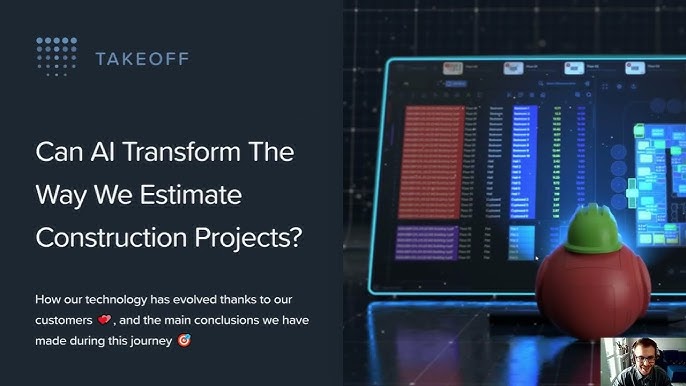
Q: How does AI estimating software benefit construction companies?
A: AI estimating software provides accurate and data-driven cost estimations, improves project management processes, enhances safety standards and sustainability practices, and ultimately increases profitability for construction companies.
Q: Can AI estimating software integrate with other technologies?
A: Yes, AI estimating software can integrate with other emerging technologies such as Building Information Modeling (BIM), robotics, and augmented reality. This integration allows for real-time data exchange between design and estimating teams, improving accuracy and streamlining workflows.
Q: What are the costs associated with AI estimating software?
A: The costs of AI estimating software can vary depending on the features, level of support, and pricing model. Some solutions may be offered on a subscription basis, while others may require a one-time purchase. It’s important to carefully evaluate the cost-benefit analysis to ensure that the investment in AI estimating software aligns with the company’s budget and long-term goals.
Q: How do I know if my company is ready for AI estimating software?
A: Determining if your construction company is ready for AI estimating software depends on several factors, including the volume and complexity of your projects, your existing technology infrastructure, and your willingness to embrace new technologies. Generally, companies that handle a high volume of projects, work on complex or diverse projects, and are committed to improving efficiency and accuracy are more likely to benefit from the implementation of AI estimating software.
Q: What are some examples of AI estimating software solutions available on the market?
A: Several popular AI estimating software solutions include Togal.AI, usBIM.planAI, and others. Each of these solutions offers unique features tailored to different aspects of the estimating process, such as automated takeoffs, cost analysis, and integration with project management tools.
Conclusion
As the technology continues to evolve, construction companies that embrace AI estimating software will be well-positioned to thrive in the years ahead. By leveraging the power of artificial intelligence, these forward-thinking organizations can optimize their estimating processes, make more informed decisions, and ultimately achieve greater success in the dynamic and ever-changing construction landscape. So why wait? Start exploring these popular AI estimating software solutions today and see how they can transform your estimating process for the better.





